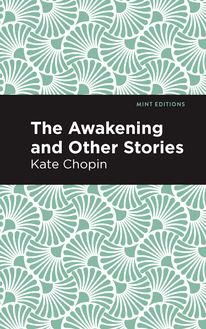-
 Univers
Univers
-
 Ebooks
Ebooks
-
 Livres audio
Livres audio
-
 Presse
Presse
-
 Podcasts
Podcasts
-
 BD
BD
-
 Documents
Documents
-
- Cours
- Révisions
- Ressources pédagogiques
- Sciences de l’éducation
- Manuels scolaires
- Langues
- Travaux de classe
- Annales de BEP
- Etudes supérieures
- Maternelle et primaire
- Fiches de lecture
- Orientation scolaire
- Méthodologie
- Corrigés de devoir
- Annales d’examens et concours
- Annales du bac
- Annales du brevet
- Rapports de stage
La lecture à portée de main
Vous pourrez modifier la taille du texte de cet ouvrage
Découvre YouScribe en t'inscrivant gratuitement
Je m'inscrisDécouvre YouScribe en t'inscrivant gratuitement
Je m'inscrisEn savoir plus
Vous pourrez modifier la taille du texte de cet ouvrage
En savoir plus

Description
After the unfortunate death of the Halliburton family patriarch, Mrs. Halliburton is forced to support her children alone. Living in a man-favoring society, Mrs. Halliburton struggles to find adequate work that will not compromise her morals and still earn her a decent pay. Having been the wife of a church cleric, Mrs. Halliburton holds a natural and strong reverence for her religion. As her family struggles through poverty, scandal, shame, and grieve, Mrs. Halliburton feels that her faith is among the few things that cannot be taken from her. However, as she allows her religion to guide her, still barely able to provide for her three children, her cousins, the Dares, hold much different standards. Contrasted with her extended family, who live by a code of convivence, Mrs. Halliburton holds her head high and she attempts to redeem her family from their social ruin to achieve a comfortable lifestyle once again. Inspired by some of Mrs. Henry Wood’s own struggles, Mrs. Halliburton’s Troubles contains an authentic and touching narrative of self-help and faith. Through the portrayal of Mrs. Halliburton’s virtuous character and the classic rags-to-riches storyline, Mrs. Halliburton’s Troubles aims to be an inspirational lesson and promotes moral behavior and faith. Though based in Victorian ideals, this message still holds relevance for modern audiences, for both self-reflection and insight into this historic period. With the detailed depiction of the class system of Victorian England, and the transition between them, Mrs. Halliburton’s Troubles provides a personal and thorough perspective of the social order of the mid-to-late 19th century. This edition of Mrs. Halliburton’s Troubles by Mrs. Henry Wood now features an eye-catching new cover design and is printed in a font that is both modern and readable. With these accommodations, this edition of Mrs. Halliburton’s Troubles creates an accessible and pleasant reading experience for modern audiences while restoring the original mastery and drama of Mrs. Henry Wood’s work.
Sujets
Informations
| Publié par | Mint Editions |
| Date de parution | 14 mai 2021 |
| Nombre de lectures | 2 |
| EAN13 | 9781513286129 |
| Langue | English |
| Poids de l'ouvrage | 1 Mo |
Informations légales : prix de location à la page 0,0600€. Cette information est donnée uniquement à titre indicatif conformément à la législation en vigueur.
Extrait
Mrs. Halliburton’s Troubles
Mrs. Henry Wood
Mrs. Halliburton’s Troubles was first published in 1862.
This edition published by Mint Editions 2021.
ISBN 9781513281100 | E-ISBN 9781513286129
Published by Mint Editions®
minteditionbooks.com
Publishing Director: Jennifer Newens
Design & Production: Rachel Lopez Metzger
Project Manager: Micaela Clark
Typesetting: Westchester Publishing Services
C ONTENTS P ART THE F IRST I. T HE C LERGYMAN ’ S D AUGHTER II. T HE S HADOW B ECOMES S UBSTANCE III. T HE R EV . F RANCIS T AIT IV. N EW P LANS V. M ARGARET VI. I N S AVILE -R OW VII. L ATER IN THE D AY VIII. S USPENSE IX. S EEKING A H OME X. A D YING B ED XI. H ELSTONLEIGH XII. A NNA L YNN XIII. I LLNESS XIV. A C HRISTMAS D REAM XV. T HE F UNERAL XVI. T ROUBLE XVII. T HOMAS A SHLEY XVIII. H ONEY F AIR XIX. M RS . R EECE AND D OBBS XX. T HE G LOVE O PERATIVES XXI. T HE L ADIES OF H ONEY F AIR XXII. M R . B RUMM ’ S S UNDAY S HIRT XXIII. T HE M ESSRS . B ANKES XXIV. H ARD TO B EAR XXV. I NCIPIENT V ANITY XXVI. M R . A SHLEY ’ S M ANUFACTORY XXVII. T HE F ORGOTTEN L ETTER P ART THE S ECOND I. A S UGGESTED F EAR II. S HADOWS IN H ONEY F AIR III. T HE D ARES AT H OME IV. T HROWING AT THE B ATS V. C HARLOTTE E AST ’ S P RESENT VI. T HE F EAR G ROWING G REATER VII. T HE E ND VIII. A W EDDING IN H ONEY F AIR IX. A N E XPLOSION FOR M RS . C ROSS X. A S TRAY S HILLING XI. T HE S CHOOLBOYS ’ N OTES XII. A L ESSON FOR P HILIP G LENN XIII. M AKING P ROGRESS XIV. W ILLIAM H ALLIBURTON ’ S G HOST XV. “N OTHING R ISK , N OTHING W IN ” XVI. M RS . D ARE ’ S G OVERNESS XVII. T AKING AN I TALIAN L ESSON XVIII. A V ISION IN H ONEY F AIR XIX. T HE D UPLICATE C LOAKS XX. I N THE S TARLIGHT XXI. A P RESENT OF T EA -L EAVES XXII. H ENRY A SHLEY ’ S O BJECT IN L IFE XXIII. A TTERLY ’ S F IELD XXIV. A NNA ’ S E XCUSE XXV. P ATIENCE C OME TO G RIEF XXVI. T HE G OVERNESS ’ S E XPEDITION XXVII. T HE Q UARREL P ART THE T HIRD I. A NNA L YNN ’ S D ILEMMA II. C OMMOTION III. A CCUSED IV. C OMMITTED FOR T RIAL V. A B RUISED H EART VI. O NE D YING IN H ONEY F AIR VII. C OMING H OME TO THE D ARES VIII. A N U GLY V ISION IX. S ERGEANT D ELVES “L OOKS U P ” X. T HE T RIAL XI. T HE W ITNESSES FOR THE A LIBI XII. A C OUCH OF P AIN XIII. A R AY OF L IGHT XIV. M R . D ELVES ON H IS B EAM E NDS XV. A L OSS FOR P OMERANIAN K NOLL XVI. A N O FFER OF M ARRIAGE XVII. T HE E XPLOSION XVIII. “C ALLED ” XIX. A G LIMPSE OF A B LISSFUL D REAM XX. W AYS AND M EANS XXI. T HE D REAM R EALIZED XXII. T HE B ISHOP ’ S L ETTER XXIII. A D YING C ONFESSION XXIV. T HE D OWNFALL OF THE D ARES XXV. A SSIZE T IME XXVI. T HE H IGH S HERIFF ’ S D INNER P ARTY
PART THE FIRST
I
T HE C LERGYMAN ’ S D AUGHTER
In a very populous district of London, somewhat north of Temple Bar, there stood, many years ago, a low, ancient church amidst other churches—for you know that London abounds in them. The doors of this church were partially open one dark evening in December, and a faint, glimmering light might be observed inside by the passers-by.
It was known well enough what was going on within, and why the light was there. The rector was giving away the weekly bread. Years ago a benevolent person had left a certain sum to be spent in twenty weekly loaves, to be given to twenty poor widows at the discretion of the minister. Certain curious provisos were attached to the bequest. One was that the bread should not be less than two days old, and should have been deposited in the church at least twenty-four hours before distribution. Another, that each recipient must attend in person. Failing personal attendance, no matter how unavoidable her absence, she lost the loaf: no friend might receive it for her, neither might it be sent to her. In that case, the minister was enjoined to bestow it upon “any stranger widow who might present herself, even as should seem expedient to him:” the word “stranger” being, of course, used in contra-distinction to the twenty poor widows who were on the books as the charity’s recipients. Four times a year, one shilling to each widow was added to the loaf of bread.
A loaf of bread is not very much. To us, sheltered in our abundant homes, it seems as nothing. But, to many a one, toiling and starving in this same city of London, a loaf may be almost the turning-point between death and life. The poor existed in those days as they exist in these: as they always will exist: therefore it was no matter of surprise that a crowd of widow women, most of them aged, all in poverty, should gather round the church doors when the bread was being given out, each hoping that, of the twenty poor widows, some one might fail to appear, and the clerk would come to the door and call out her own particular name as the fortunate substitute. On the days when the shilling was added to the loaf, this waiting and hoping crowd would be increased four-fold.
Thursday was the afternoon for the distribution. And on the day we are now writing about, the rector entered the church at the usual hour: four o’clock. He had to make his way through an unusual number of outsiders; for this was one of the shilling days. He knew them all personally; was familiar with their names and homes; for the Rev. Francis Tait was a hard-working clergyman. And hard-working clergymen were more rare in those days than they are in these.
Of Scottish birth, but chiefly reared in England, he had taken orders at the usual age, and become curate in a London parish, where the work was heavy and the stipend small. Not that the duties attached to the church itself were onerous; but it was a parish filled with poor. Those familiar with such parishes know what this means, when the minister is sympathising and conscientious. For twenty years he remained a curate, toiling in patience, cheerfully hoping. Twenty years! It seems little to write; but to live it is a great deal; and Francis Tait, in spite of his hopefulness, sometimes found it so. Then promotion came. The living of this little church that you now see open was bestowed upon him. A poor living as compared with some others; and a poor parish, speaking of the social condition of its inhabitants. But the living seemed wealth compared with what he had earned as a curate; and as to his flock being chiefly composed of the poor, he had not been accustomed to anything else. Then the Rev. Francis Tait married; and another twenty years went by.
He stood in the church this evening; the loaves resting on the shelf overhead, against the door of the vestry, all near the entrance. A flaring tallow candle stood on the small table between him and the widows who clustered opposite. He was sixty-five years old now; a spare man of middle height, with a clear, pale skin, an intelligent countenance, and a thoughtful, fine grey eye. He had a pleasant word, a kind inquiry for all, as he put the shilling into their hands; the lame old clerk at the same time handing over the loaf of bread.
“Are you all here to-night?” he asked, as the distribution went on.
“No, sir,” was the answer from several who spoke at once. “Betty King’s away.”
“What is the matter with her?”
“The rheumaticks have laid hold on her, sir. She couldn’t get here nohow. She’s in her bed.”
“I must go and see her,” said he. “What, are you here again, Martha?” he continued, as a little deformed woman stepped from behind the rest, where she had been hidden. “I am glad to see you.”
“Six blessed weeks this day, and I’ve not been able to come!” exclaimed the woman. “But I’m restored wonderful.”
The distribution was approaching its close, when the rector spoke to his clerk. “Call in Eliza Turner.”
The clerk placed on the table the four or five remaining loaves, that each woman might help herself during his absence, and went out to the door.
“’Liza Turner, his reverence has called for you.”
A sigh of delight from Eliza Turner, and a groan of disappointment from those surrounding her, greeted the clerk in answer. He took no notice—he often heard it—but turned and limped into the church again. Eliza Turner followed; and another woman slipped in after Eliza Turner.
“Now, Widow Booth,” cried the clerk, sharply, perceiving the intrusion, “what business have you here? You know it’s again the rules.”
“I must see his reverence,” murmured the woman, pressing on—a meek, half-starved woman; and she pushed her way into the vestry, and told her pitiful tale.
“I’m worse off than Widow Turner,” she moaned piteously, not in tones of complaint, but of entreaty. “She has a daughter in service as helps her; but me, I’ve my poor unfortunate daughter lying in my place weak with fever, sick with hunger! Oh, sir, couldn’t you give the bounty this time to me? I’ve not had a bit or drop in my mouth since morning; and then it was but a taste o’ bread and a drain o’ tea, that a neighbour give me out o’ charity.”
It was absolutely necessary to discountenance these personal applications. The rector’s rule was, never to give the spare bounty to those who applied for it: otherwise the distribution might have become a weekly scene of squabbling and confusion. He handed the shilling and bread to Eliza Turner; and when she had followed the other women out, he turned to the Widow Booth, who was sobbing against the wall; speaking kindly to her.
“You should not have come in, Mrs. Booth. You know that I do not allow it.”
“But I’m starving, sir,” was the answer. “I thought maybe as you’d divide it between me and Widow Turner. Sixpence for her, sixpence for me, and the loaf halved.”
“I have no power to divide the gifts: to do so would be against the terms of the bequest. How is it you are so badly off this week? Has your work failed?”
“I couldn’t do it, sir, with my sick one to attend to. And I’ve a gathering come on my thimble finger, and that has hindered me. I took ninepence the day before yesterday, sir, but last night it was every farthing of it gone.”
“I will come round and see you by-and-by,” said the clergyman.
S
-
 Univers
Univers
-
 Ebooks
Ebooks
-
 Livres audio
Livres audio
-
 Presse
Presse
-
 Podcasts
Podcasts
-
 BD
BD
-
 Documents
Documents
-
Jeunesse
-
Littérature
-
Ressources professionnelles
-
Santé et bien-être
-
Savoirs
-
Education
-
Loisirs et hobbies
-
Art, musique et cinéma
-
Actualité et débat de société
-
Jeunesse
-
Littérature
-
Ressources professionnelles
-
Santé et bien-être
-
Savoirs
-
Education
-
Loisirs et hobbies
-
Art, musique et cinéma
-
Actualité et débat de société
-
Actualités
-
Lifestyle
-
Presse jeunesse
-
Presse professionnelle
-
Pratique
-
Presse sportive
-
Presse internationale
-
Culture & Médias
-
Action et Aventures
-
Science-fiction et Fantasy
-
Société
-
Jeunesse
-
Littérature
-
Ressources professionnelles
-
Santé et bien-être
-
Savoirs
-
Education
-
Loisirs et hobbies
-
Art, musique et cinéma
-
Actualité et débat de société
- Cours
- Révisions
- Ressources pédagogiques
- Sciences de l’éducation
- Manuels scolaires
- Langues
- Travaux de classe
- Annales de BEP
- Etudes supérieures
- Maternelle et primaire
- Fiches de lecture
- Orientation scolaire
- Méthodologie
- Corrigés de devoir
- Annales d’examens et concours
- Annales du bac
- Annales du brevet
- Rapports de stage


















